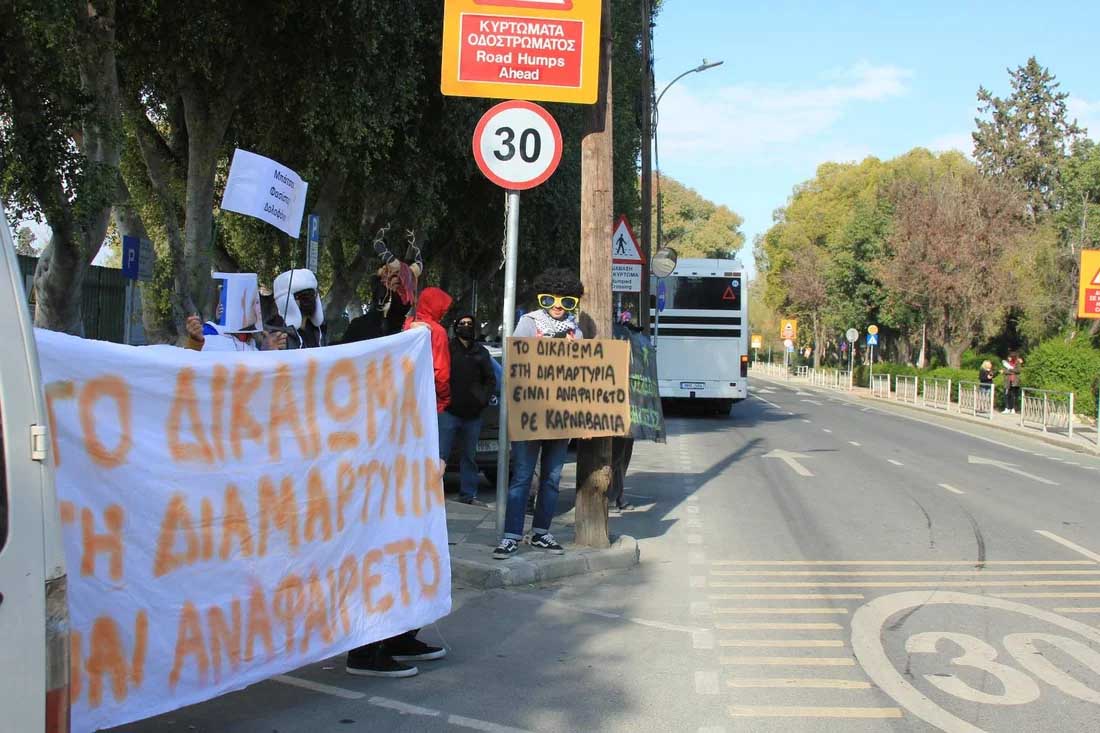A demonstration took place outside Parliament on Thursday, co-signed by 35 groups ranging from Far Right Watch to Save Akamas to Queer Collective. This was the second protest in two weeks against the proposed ‘Public Gatherings and Parades Law of 2025’, a law to regulate the right to protest.
In response, the government postponed the vote on the bill to July 10, so it can be reviewed by the parliamentary committee on legal affairs.
However, the president of that committee, Nicos Tornaritis of Disy, has previously said that he “can’t personally see a violation of any human right” in the proposed legislation, so it’s unlikely there are going to be any radical changes.
The controversy is interesting, because it reveals assumptions on both sides – a deep suspicion of state power (what you might call conspiracy-ism) on one side, a risk-averse faith in regulation (what you might call safetyism) on the other.
The bill doesn’t outlaw or forbid demonstrations and public gatherings. It does, however, regulate them quite strictly.
Notice of a protest must be given at least seven days in advance. The police then have sweeping powers to impose conditions, both before and during the protest. Demonstrators aren’t allowed to wear masks or hide their face. An official organiser is designated, who’s legally responsible if something goes wrong. And so on.
In theory, this is all very well. We trust the state to regulate everything else, so why not protests too? Ideally, the cops would just tweak the route a little, so as to minimise disruption to others.
This is the position of those who say ‘It’s fine to protest, but only if you don’t inconvenience other people’, and ‘Your right to protest ends where my right to live in peace begins’.
It’s the position we’ve heard from Israel supporters in the US, for instance, claiming that ‘of course’ college students are allowed to demonstrate against the atrocities in Gaza – but not if they’re blocking other students from going to class.
This sounds fair, but it’s actually disingenuous. A protest that caused no inconvenience to anyone would be ineffective, and probably pointless. Then again, where’s the line? It’s generally accepted, for instance, that hunters in Cyprus went too far a few months ago, when they blocked the highway causing hours of disruption.
Indeed, the problem goes deeper. The groups that gathered on Thursday don’t believe that the police will just ‘tweak the route a little’ – they believe that the powers in the new law will be used to suppress the right to protest altogether.
They believe that the system is broken – and they have a point (or perhaps they’re just conspiracy-ists). Gaza is a good example of an issue where official policy is seen as unacceptable – and morally repugnant – by thousands of people, yet our institutions seem unable to do anything about it.
Covid was another such issue, a case where public protests became the only expression of dissent (MPs and courts turned out to be useless) against lockdowns and vaccine propaganda. Yet Covid was also an issue where the people not protesting – the safetyists – welcomed restrictions, and praised the government for looking out for public health.
How to square this impossible circle? We don’t want mob rule, after all. A protest might reflect a noisy minority, not the silent majority. Not to mention that we live in a social-media world full of angry people with pet causes. Are we going to let every fringe group hijack daily life with their grievances?
Hopefully not. But this proposed new law is a slippery slope.
The right to protest is flawed, and open to abuse – but it needs to be protected, now more than ever. You don’t have to be a conspiracy nut to see that the state now has unprecedented powers (surveillance, AI, money controls, data harvesting) to create propaganda and single out dissidents.
We’ve become so used to regulation and safetyism that most people see government as their friend – a protection against criminals, terrorists, pandemics, you name it. But the government doesn’t need any friends. It already holds all the cards in this game. A society where the state constantly has to worry about ‘people power’ is likely to be healthier than one where public gatherings are tightly controlled.
Protests are a very imperfect weapon, in any case. Months of anger on Gaza haven’t really accomplished much. Millions protested against the invasion of Iraq in 2003, but it happened anyway. Canadian truckers converged on Ottawa during Covid to declare their objection to vaccine mandates – but the government refused to meet with them, declared an emergency, then froze their bank accounts for having the temerity to protest.
The proposed law may be well-intentioned. But at this point the right to protest should be encouraged, not regulated.






Click here to change your cookie preferences